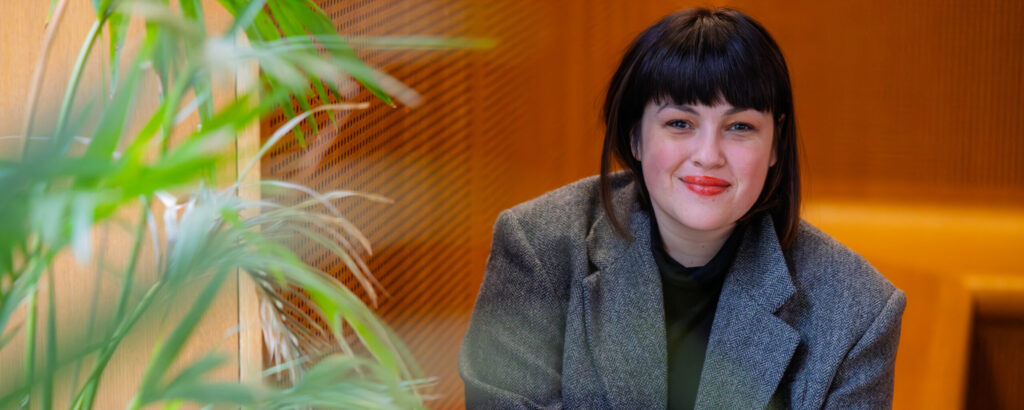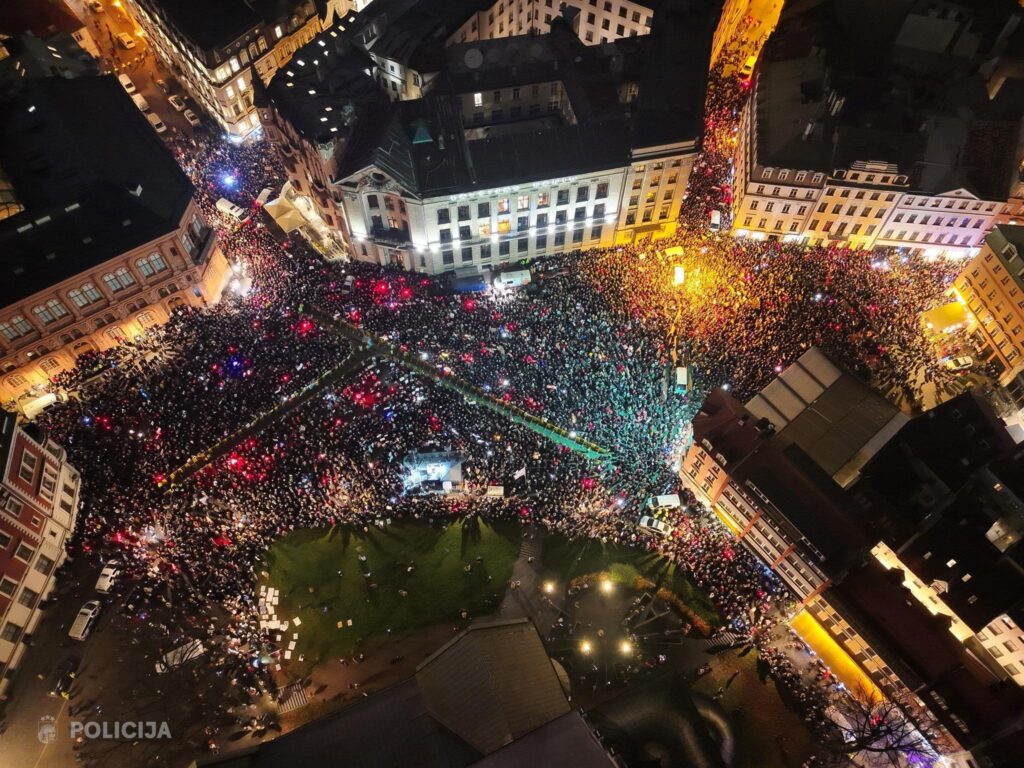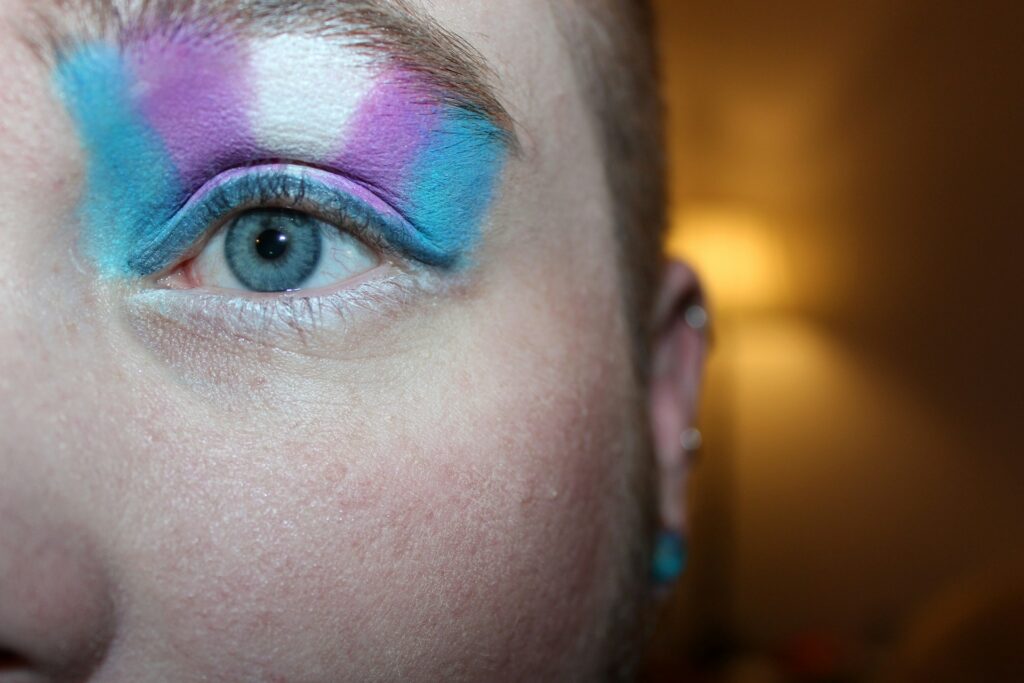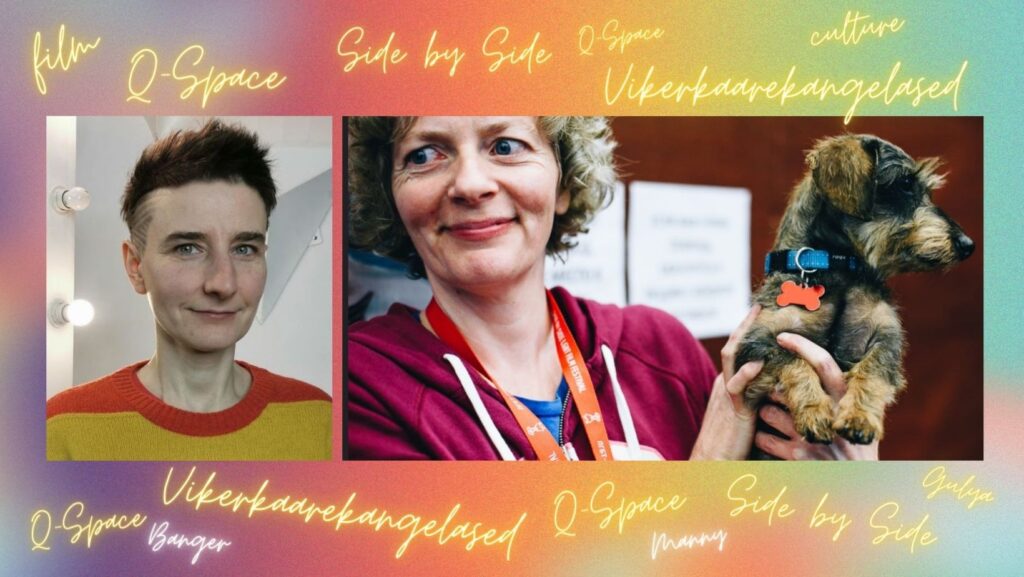Humanitarian Aws Jubair: Attacks against LGBTQ+ people have increased in Turkey
Feministeerium interviews Aws Jubair, a humanitarian aid worker, refugee and LGBTQ+ activist based in Turkey. He is one of the co-founders of the Amani Project, which assists LGBTQ+ refugees and promotes LGBTQ+ rights in the Middle East and North Africa (MENA). He also works on the dialogue project De-otherize, which seeks to build meaningful cooperation between refugees in the Middle East and the West, foster mutual understanding, and reduce hatred and xenophobia.
Aman Project works in Turkey to support LGBTQ+ refugees. What should we know about it?
Aman Project started in 2017 for LGBTQ+ refugees in Turkey, and since then, we have moved into advocating for their rights throughout the MENA region. Our core mission is to provide a safe space for LGBTQ+ refugees to be themselves. They come from Syria, Iraq, Iran, Afghanistan, Palestine, Morocco and other places in MENA. (HH: ”Aman” can be translated as “Safety” in Arabic).
What brings them to Turkey?
For them, it is the closest safe destination, relatively speaking. They come with an expectation that Turkey, and especially its biggest city, Istanbul, is this tolerant, modern place. And in a way it is, but it is still a hostile living space for the LGBTQ+ community. They expect it to be safer, but actually, it is not. Yet still, from here, they can have the opportunity to be safely resettled to the next destination, which can be Europe or North America.
Indeed in the recent political climate, hate speech and even hostilities against sexual minorities are rather common in Turkey. Also, refugees, in general, are not allowed to work legally and, nowadays, are targeted fiercely in the pre-election political climate. Are they doubly discriminated?
Yes, there is a lot of homophobia and transphobia against LGBTQ+ people, and as refugees, they cannot travel or work freely. It quickly becomes a huge burden because, as refugees in general, they work informally and get exploited, abused and attacked, with income problems on top of it all. Their dream suddenly turns into a nightmare, and they go through a lot of anxiety. Our mission is to help them find a place to stay, have food on the table, and have psychosocial support until they reach their final destination.
Today, Turkey’s anti-refugee sentiment is higher than ever, and many wonder how long they are welcome here. They are intimidated; they feel worried about getting out of their neighbourhoods, taking a bus, speaking Arabic, and even walking the streets at night. We hear news of attacks against refugees every week. Last week, someone from our community was attacked in central Istanbul and was beaten and stripped of her clothes. Because of these examples, beneficiaries struggle with mental health and have constant stress and depression. Almost all have had suicidal thoughts in the past weeks or year. Some have tried to commit suicide, and we have had to admit them to the hospital because they became a danger to themselves.
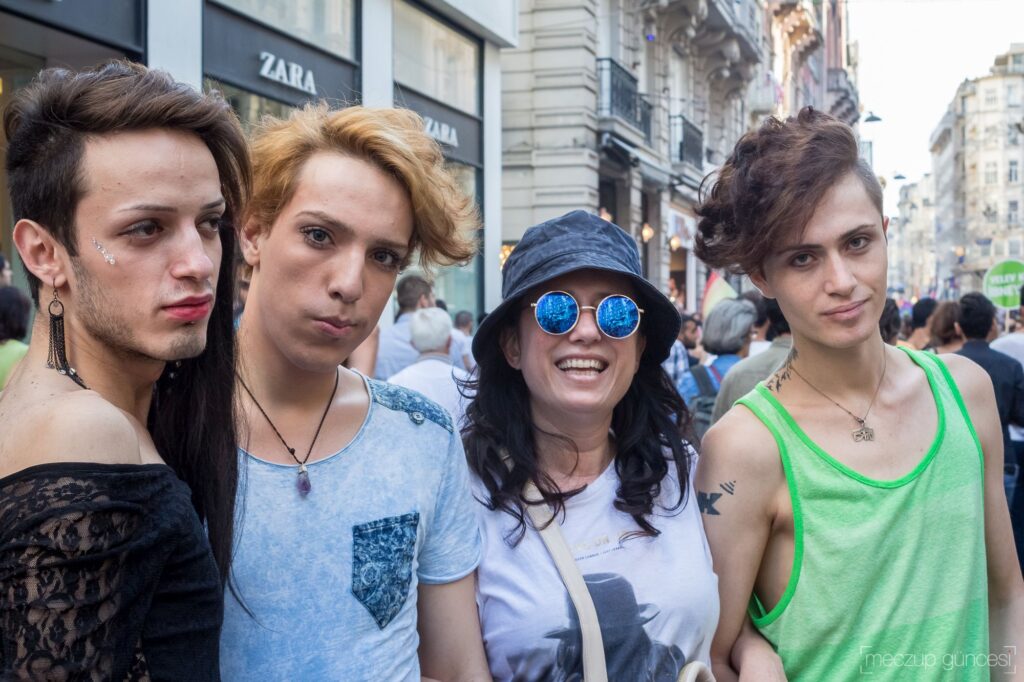
The LGBT+ community on the Istanbul Pride. Photo by Alican Koçdönmez, autodidactics.co
What is your own story?
I am Iraqi, and I was 12 in 2003 when the war started in Iraq. I remember when soldiers started to come to Baghdad, and battles and fighting began. Soon after, some armed groups and terrorists targeted civilians and killed many people in our Hai Al Jameaa neighbourhood, including my neighbours and my barber. My teacher was killed, and my friend as well. They were killed because of sectarian violence and extremism, which was a result of the US invasion.
In 2005-2006, bombs went off in front of the school, and terrorists blasted the police station at the end of the street. A Shia schoolmate was kidnapped. Out of 5 parallel classes of 30 students each, only two classes remained. Everyone left the area or Iraq entirely.
We moved to another neighbourhood. My mother is of Palestinian origin and did not wear a headscarf, so someone close to the militias spread a rumour that she was kidnapping children. I was 15 when the army and police stormed into our house, and she was arrested. After 50 days, she was released, and we had to move again. During this period, I also started having problems at school because I am an atheist and people knew it. I was threatened because I listened to metal, I looked different, and it seemed to some that I was promoting a new ideology. Some threw stones at me, and I stopped going to school. Some threw stones at me, and I stopped going to school.
But I was not the only one — extremists targeted anyone who had a unique style or different hair. It didn’t matter whether you were an emo or a metal fan. For them, it was all one “Western thing”. Emo kids were seen as homosexuals, and metal fans were perceived as Satanists. Terrorists smashed bricks onto these kids’ heads to kill them on the streets. Iraq was getting more and more dangerous. My family tried every way to stay there, but we had to move to Turkey. 1
Can you describe the society and the culture you grew up in and how the US invasion affected life in Iraq?
Iraqis, in general, are not radical people. They don’t like extremism and religious rule. They might have a problem with atheism (and I have experienced verbal and physical fights over being an atheist), but overall, people just want to live, go to school, want to go to a good university, travel, and work, like all other people. When I was a kid, I also used to go to a mosque as a social activity. Everyone went, and before 2003 it was fine. We’d memorise the Qur’an and play football, and life was fun.
My dad was Shia, my mom Sunni, and before 2003 no one cared. However, after the fall of Saddam in 2003, many people who had been in the armed forces felt they were stripped of their influence, and they hated America because of this. Some became extremists and joined Al-Qaeda and ISIS and became radicalised.
Once the Americans deposed Saddam and created a void in power, the most extreme elements filled it (Al Qaeda affiliates in Sunni areas and groups like Al Mahdi Army in Shia areas). They are the ones who are willing to pick up arms and are willing to die. They are organised, especially when they have backing abroad. They became influential.
The regime was terrible before 2003, but all we have seen after this was extremists in power — not only in government necessarily, but they are shaping the daily reality. I grew up wanting to be a soldier, because I wanted to fight the terrorists and extremists. I still think of myself as a soldier, but the real fight is different: it is not with guns. It is with ideas.
That is why they are targeting activists in Iraq. Look at the past few years in Iraq, and you see that especially after 2019, when the activists mobilised the people who led the popular upraise which demanded change — the extremists got nervous and scared. They began openly targeting unarmed protesters. Then the prime minister resigned and there was an early election, but the Iran-backed extremists did not forgive or forget this. They wrote down the names of the activists and systematically targeted them. Many of those seeking to implement the change fled the country. I would also be targeted if I went back to Iraq. But I don’t want to abandon Iraq. I feel Iraq needs me and people like us who openly advocate for change. Unless we actively participate, we don’t have a right to complain.
What led you to question the generally conservative values?
I give credit to my parents. My mom is not an atheist but she is educated, has worked as a journalist, and criticised her society, patriarchy, gender roles and double standards. She taught me to be critical of our society, not just agree with everything we do.
Before 2003 Iraqi society never talked of jihad or fighting because we had no reason to. We only knew about terrorism from the movies. However, after 2003, things changed completely. I used to go to the mosque with my friends, and my father became worried I would be brainwashed. During Ramadan, while I was fasting, my father sat down with me and asked why I was fasting. I told him God had told us to do so. He asked, how do you know God exists? Before that, I never questioned God. It was like air or water, and it existed for sure. But I trusted my father had a point. After a year of thinking, I became an atheist.
We had religious classes every day in Iraq. Those who choose the profession of a religious teacher are generally not progressive; they are usually conservative. Our teacher said many things I could not agree with. He would criticise Christians and say we needed an Islamist government. I always challenged this. I thought if I presented an opposing view, the other kids would have a chance to think for themselves rather than just agreeing to whatever he said. The teacher got upset with me many times. One time he got so angry he came up to my face and yelled at me for simply pointing out that we should not have Islamist rule. I’d like to think that’s when my activism started.
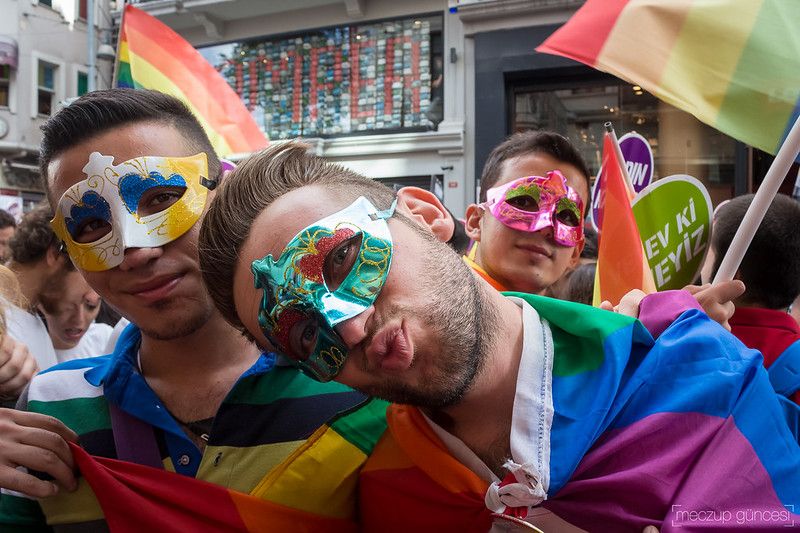
Turkey’s LGBTQ+ colourful community. Photo: photo by Alican Koçdönmez, autodidactics.co
Coming back to the reasons why sexual minorities try to leave — Iraq and its neighbours are predominantly conservative and patriarchal societies, where sometimes most toxic examples of masculinity appear. I want to touch upon rape as a punishment for homosexuality. For example, of cases where homophobic heterosexuals rape gays because of their sexuality to “punish” them, sometimes on the grounds that homosexuality is against Islam.
It is the question of power. They think the person who commits rape, the one who penetrates, is in power. The submissive one, who is being penetrated, is being shamed. Of course, real religious people with real morals could not justify such things, but some are just homophobic and claim doing this is not shameful as long as they are not penetrated.
So by the same token, for these people, when a man and a woman have intercourse, the woman is by default the shamed one?
Good question. Yes, when they curse at someone, they would say your mother or sister is getting f….d. For them having sex is somehow indecent, lustful and shameful. So to refer to someone’s sister or mother in a sexual context means humiliation — the women are getting f….d, but the man is having fun.
It is about hierarchy, how we see men and women, and their roles. Men are higher in the hierarchy and can have fun. Women are there to please and not to have fun. It is a misunderstanding of what sex is.
It is unhealthy, and many human rights violations come from this basic norm of shame. Men do not allow women to go out to prevent them from having sex, especially outside marriage. Sex outside wedlock is seen as a deep shame in the family. Therefore women are stripped of their freedom to study, work, or travel, which is all related to this. They would not allow women to go out alone, which makes them housebound. Even a brother has a right to dictate to his sister what to do. Many are sexually repressed but also sexually frustrated. But our society is hypocritical, like many conservative societies are.
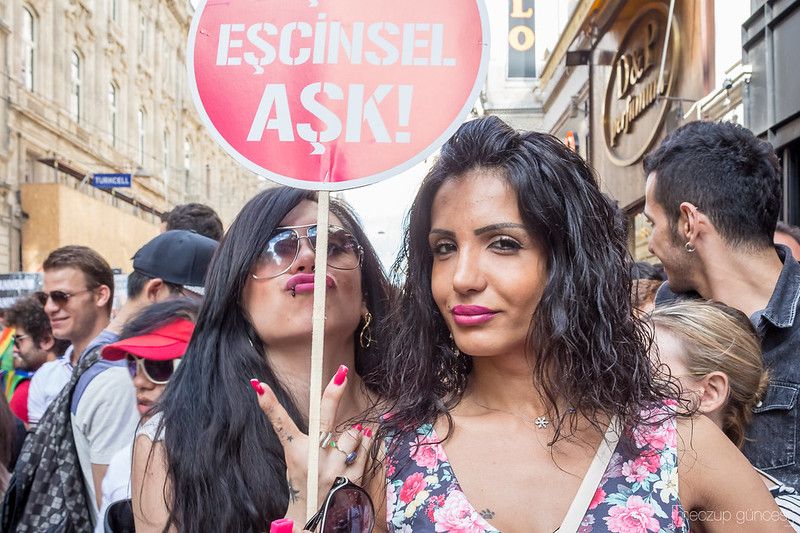
You have come away from all this and also became a refugee in Turkey yourself while doing so. How has this experience been for you? What have you observed?
I came here as a refugee in 2011 when the Pride march was taking place in Istiklal.2 Today, this topic has been politicised, and since last year we have heard many top politicians targeting the LGBTQ+ community. They want to gain multiple points, knowing that most Turkish public is still conservative. Unfortunately, this rhetoric still works for them. As a result, the LGBTQ + community has been more exposed and not in a good way. If anything, things have gotten worse here and will probably worsen before the election.3
For me, it has been a struggle, as well as for others. I have contemplated suicide and have constant anxiety. Living in Turkey is very stressful as a refugee. You don’t have rights, and you don’t have the freedom to work or travel. The hardest thing is the constant uncertainty. You know you have no future here, but you also don’t know what will happen to you.
Or when you are being exploited. Or don’t have money — it adds to the pressure. It is a system that is designed to destroy people psychologically. I found help in doing something meaningful and meeting like-minded people along the way. Men in this region are expected to be tough and deal with problems on their own, but as I became more professional in helping others, I also started seeking mental health support regularly for myself.
Thank you for sharing this. Regardless of the challenges along the way- are you seeing any progress? Regardless of everything- I see people admitting more openly who they are, and many minorities have started talking more freely about their identities in MENA countries. Do you see any shift between what the conservative patriarchal politicians in the MENA region are pursuing and where the societies are moving regardless?
I agree. As a civilisation, I think we are progressing. Homophobia and transphobia are becoming less accepted, and social media, even Netflix, plays a role in this. The whole world is connected, and yes, the Middle East still has strong taboos and barriers, but it is more open than 20 years ago. In Iraq, more people are pro LGBTQ + rights now than ever before. Time is on our side, but if we don’t do anything, it can’t be expected to stay on our side. We can see that even in democracies, the fallbacks are happening. The other forces are also working to change how they see it. The struggle is the same everywhere — progressive voices against our societies’ conservative/theocratic elements. Yes, some places are still worse than others but that can and will change.
In the field of human rights, what inspired you to defend sexual minorities specifically?
Working for LGBTQ+ rights upsets Islamists; many of them do not tolerate gays and transgender people. But I believe in human rights; every human deserves dignity and respect. I work for this cause because I know how society treats these minorities. My society can be cruel, and I know what it means to be the “other”, being an atheist. I believe that the question of morality and honour depends on what you do for the most vulnerable. And these questions are not superficial! They are affecting real people’s lives, safety, and mental health. If we succeed, the world may be a little bit better.

Middle East LGBTQ+ community. Photo: Baran Lotfollahi, Iran / Flickr.com
Is it easy to find funding for such a support project nowadays?
It was easier before the pandemic, but now it is harder. With inflation and trying to balance safety and security concerns, we try to be careful about how we talk about our work or how much we represent ourselves because we are worried that the wrong people will find us or the government will crack down on us. It is a constant balancing act between these things.
How do the beneficiaries find you?
Through word of mouth, social media or some organisations we are collaborating with.
Success stories?
We have plenty of those. Throughout the years, we have supported around a thousand people. People have been safely resettled to Canada, USA, Germany, Finland etc. When we hear that they are safe, have found work and have become independent, it is our ultimate goal, and this is what we want to see. Sometimes it happens here in Turkey too.
What is your message to the readers of Feministeerium?
No matter who you are, we all have certain privileges. Yes, I am a refugee from Iraq and have dealt with many issues. Systematic social, financial struggles and psychological problems. But still, I am privileged to be a cis straight man. Everyone needs to reflect on their privileges and understand that many others are struggling because they don’t have the same advantages.
And it is not enough to be aware of your privilege. One has to take action and stand in solidarity with those persecuted. Start by supporting those voices who are progressive thinking and who are working to bring along a change.
Finally, could you recommend books, films, or blogs to which the readers can further get into this subject?
Any book by Nawal El Saadawi.4
Thank you!
Thanks so much for your time. I hope your readers enjoy this article.
- Up until last year, 37% of Iraqis would prefer to emigrate from their home country, 47% of them citing „security“ as the reason for their decision. https://www.arabbarometer.org/wp-content/uploads/Iraq-Arab-Barometer-Public-Opinion-2021-ENG.pdf p 9
- Famous walking street in Istanbul’s Beyoglu area.
- Presidential and general elections are due to take place in June 2023 in Turkey.
- Nawal El Saadawi (22 October 1931 – 21 March 2021) was an Egyptian feminist writer, activist and physician. She wrote many books on the subject of women in Islam and was described as the Simone de Beauvoir of the Arab World.

